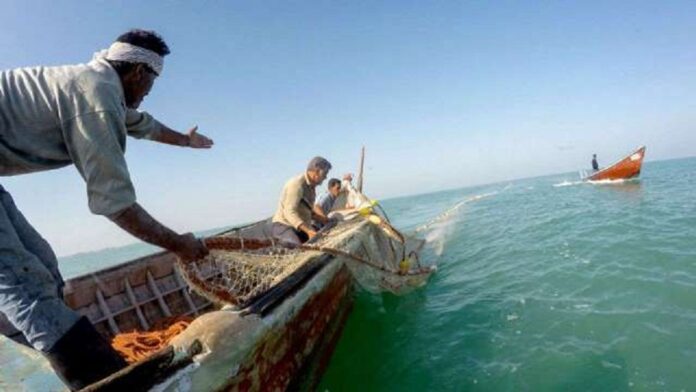The United Kingdom has stepped in to provide humanitarian aid in cash for Sri Lankan fisher community in dire straits.
They have lost their livelihood because of the high costs borne by the fishermen to bring the catch ashore and the slumping prices are putting the entire industry at risk, mainly because the demand is very low.
Usually, more than 200 to 300 Sri Lankan fishing boats set out to sea, however after the economic crisis hit, coupled with an acute shortage of fuel most of the Sri Lankan fishermen have been forced to tie up their boats to the piers, hoping for better days.
“The demand for fish had slumped. The main reason for this is the high cost of fuel and the rising cost of living. A liter of fuel that cost only Rs. 70/- before is now almost Rs. 400/-. The catch has dropped, but the price does not increase because the demand is low,” several fishermen said.
The United Kingdom, through the Food and Agriculture Organization (FAO) of the United Nations is providing GBP 880,000 (USD 1,043,395) to strengthen the food and nutrition security of marginal fishers in Tangalle, Negombo, Colombo, Kalutara, Galle, Matara, Puttalam, Chilaw, and Mannar of Sri Lanka.
In light of World Fisheries Day (November 21) being celebrated this week, the British High Commissioner to Sri Lanka, Sarah Hulton OBE announced the support stating “We recognize that the fisheries sector in Sri Lanka has been going through a very difficult period.
The UK is contributing £880,000 to help address some of the challenges faced by those working in this industry. The support will focus on increasing access to nutritious food and other essentials for families.”
FAO will utilize the contribution of the British government to support over 5,000 small-scale marine artisanal fishers using non-motorized traditional boats, who have traditionally been amongst the poorest within the fishing community.
Eligible fishers will receive US$ 47 per month for a period of 3 months in unconditional cash transfers to help affected households meet their essential needs, including immediate food and livelihood requirements.
Minister of Fisheries Douglas Devananda appreciated the support extended to the fisheries community. “Fish has traditionally been a primary source of protein and a major source of foreign exchange earnings for the country.
He noted that everyone must stand with the fishing community during these times to ensure they can continue their valued work which contributes to the food security and financial stability of the country. he thanked the British government and FAO for supporting the community.”
Speaking on the initiative FAO Representative for Sri Lanka and the Maldives, Vimlendra Sharan stated: “Small-scale fishers have been faced with multiple challenges this year.
Reduced fishing days a week, decreased fish catch, and reduced demand due to the fall in purchasing power in rural areas have all significantly impacted this group
